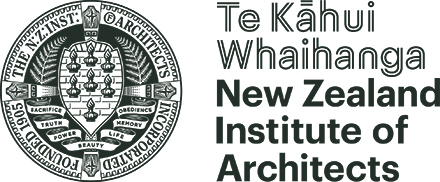Becoming a registered architect
Whether you have just graduated or have been working for a while, the NZIA encourages you to become a Registered Architect. The NZIA APL Registration Programme is a specifically tailored course of seminars, workshops and resources that will help you along the way.
Without registration, you won’t be able to call yourself an architect and you won’t get much say in the way you work, let alone where the profession is heading. Registration also gives you the opportunity to work overseas as an architect, or to start your own practice. The process and assessment procedure for registration is set down by the New Zealand Registered Architects Board (NZRAB). Graduates must complete 2-3 years of on-the-job practical work experience before they can apply to become a Registered Architect.
Prior to registration, it is expected that graduates will have experience in architectural projects showing competence through all its project phases, and have a sound knowledge of the legal and contractual issues related to the practice of architecture. Te Kāhui Whaihanga has designed a fun and collegial programme and is an essential step for members to take on their path to registration. The programme has seminars/workshops throughout the year presented by leading architects and representatives from the New Zealand Registered Architects Board (NZRAB). On-line seminars on important topics are also provided to members (login to the members area of this website to view these).
To participate in the Te Kāhui Whaihanga APL Registration Programme you need to be a member of Te Kāhui Whaihanga.
Who is eligible?
The process and assessment procedure for registration is set down by the New Zealand Registered Architects Board (NZRAB). To be eligible for registration, applicants must apply under NZRAB criteria called ‘pathways’. Full pathway details can be viewed on the NZRAB website.
The majority of registrations in New Zealand fall under Pathway 1. Before undertaking registration, applicants in this category must complete two to three years of practical work experience. Prior to registration, it is expected applicants will have experience in all phases of an architectural project and be able to demonstrate competence throughout. They will also require a sound knowledge of legal and contractual issues related to the practice of architecture.
Te Kāhui Whaihanga APL Registration Programme
The Te Kāhui Whaihanga APL Registration Programme is comprised of workshops and seminars which are presented by leading New Zealand architects. It’s a collegial exercise that provides a way for those undertaking registration to share notes, network and form study groups. It is a valuable step on the path to registration.
Te Kāhui Whaihanga members only can login to access key seminar resources, including a suite of introductory videos, and further information about the Te Kāhui Whaihanga APL Registration Programme here.
Experience Areas
To become a Registered Architect you are required to demonstrate that you can practice competently to the standard of a registered architect and refer to the Architects Rules relating to the minimum standards for registration.
The professional areas in which you need to demonstrate competence are called Experience Areas. This experience is documented in a case study that you submit with your registration application. At the Professional Conversation stage of the assessment process, you present a summary of your experience at an interview with NZRAB assessors. Professional Conduct and Code of Ethics is a topic that applies to all the Experience Areas.
Experience Areas are summarised below:
- Project initiation and predesign
- Concept, preliminary and developed design stages
- Detailed design and documentation
- Procurement
- Administration and observation of contract works
- Practice management and office conduct
The NZIA APL Registration Programme provides seminars, and workshops throughout the year for Members on these Experience Areas. The Experience Area Workshops held throughout the year are interactive fun and essential to get an overview of the requirements.
Case study
Once you have received the necessary experience to apply for Pathway 1, you are required to prepare a case study to document your experience in accordance with the Experience Areas. When you make an application for registration, you submit your case study at the same time. The NZRAB case study requirements can be viewed here.

Aaron Paterson, director, Paterson Architecture Collective
Auckland
I found the NZIA APL Registration Programme a real asset for its collegial spirit and in its striving for professionalism.



